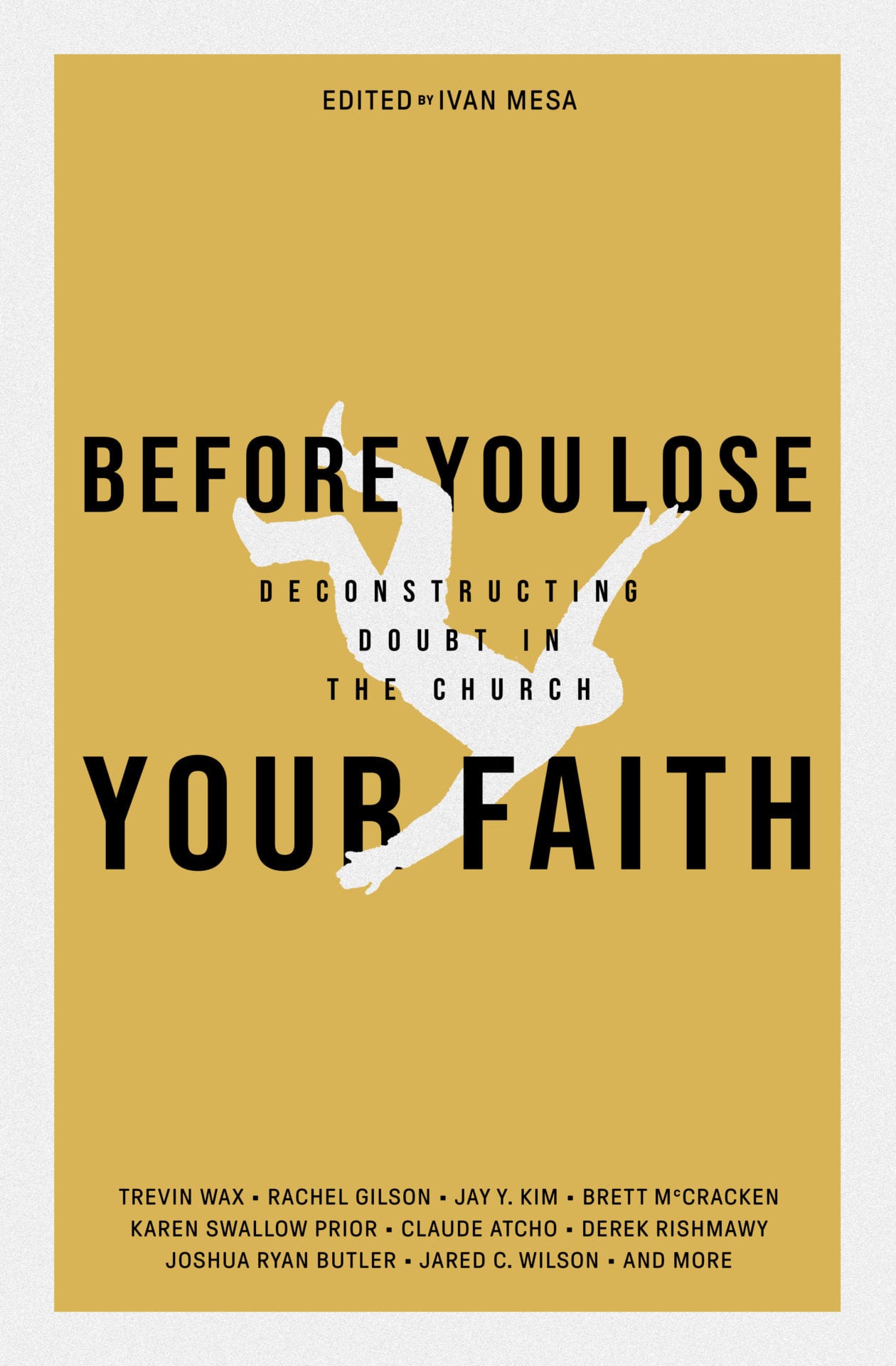Do your emotions define you?
If you answer “yes,” you have a bit of a biblical problem: Nothing about your identity in Christ, eternal life, forgiveness for sins, or purpose as a member of God’s family rests on your emotions. Your emotions can’t possibly define you more fundamentally than these things do. Right?
However, if you answer “no,” you also have a problem with Scripture’s teaching: The Bible shows over and over again that our emotions flow from what we love and worship. This is why those who love the Lord, his people, and his kingdom can actually rejoice in the face of persecution (Matt. 5:11–12), ridicule (1 Pet. 4:12–14), and even physical assault for the sake of the gospel (Acts 5:40–42). It’s also why those who love comfort, reputation, wealth, or any other false hope, will rejoice in things that grieve God (1 Tim. 4:3–4) and hate what he loves (Jer. 2:20). In short, if our emotions flow from what we treasure, how can they not define us in a significant way? Right?
Our emotions don’t define us in the sense of undercutting God’s definition of us. But they do define us in that they reveal and express our heart’s ultimate loyalties. Because neither of these biblical realities can be minimized, our emotions are neither the most important thing about us, something to be worshiped, nor are they the least important, a problem to be avoided or ignored.
Unfortunately, this puts us in direct conflict with two prevailing, problematic ideas in the cultural air we breathe.
‘Spit It Up’—Emotions Are Everything
The loudest voice in the Western world tells us that our emotions are everything, the things that most define us. You live among a people whose cultural practice increasingly proclaims that what you feel is the most important thing about you. The highest good our culture seeks is having good feelings. Therefore, a problem with your feelings is your biggest problem.
Given this, the next step our culture takes is quite natural: You need to be and express yourself at pretty much all costs. This is why we value “getting it off your chest,” “letting off steam,” “just being honest,” and so on. We’re instructed to handle the fragile baggage of our emotions by expressing them to the fullest (no matter what others may think) and/or rearranging the furniture around us to make space for them (we applaud the courage of those who refuse to silently accept the world as it is).
Our emotions are neither the most important thing about us, something to be worshiped, nor are they the least important, a problem to be avoided or ignored.
None of this is peculiar to the secular world. The church has its versions of this emotional obsession. For example, we often elevate emotional experience to the peak of Sunday morning worship. The goal of the sermon is to feel deeply convicted or inspired; the goal of the music is to feel a rush of ecstasy or thanksgiving; the goal of coffee hour is to feel connected and included. This mentality often drives personal devotions as well: We evaluate it based on whether we feel Jesus’s beauty, or feel less anxious, or feel closer to God.
Please hear me. These feelings are wonderful in themselves! We ought to be moved by God’s Word and rejoice when sermons or songs touch our hearts. But it’s easy for a healthy appreciation of emotion to slide into an unhealthy emotionalism that makes emotion itself the point.
‘Suck It Up’—Emotions Are Nothing
There is a second, opposite instinct out there. It holds that we should treat emotions like you would a rabid dog that has wandered into your living room. Call this instinct keeping a stiff upper lip, stoicism, or being a tough guy. The second voice from our culture argues that emotions are not to be trusted. Action movies, corporate culture, sports heroes, and our adoration of brave activists all remind us that the stoic voice in our culture isn’t completely a thing of the past.
Given the moral and spiritual slide emotionalism facilitates in our broader culture, it’s not hard to understand why this stoic approach to emotions has been popular in Christian circles. Christian stoicism tends toward immediately repenting of any negative emotion in oneself and rebuking it in others. The driving theological emphasis here is that negative emotions (e.g., anger, sorrow, fear) are inappropriate, given God’s sovereignty. If God ordained this suffering and he works all things for good, then the only reason you feel bad is because you don’t have enough faith.
The experience of a woman I know captures this problem all too well. She lost three children in three years. While many in her church expressed sorrow and compassion, she still felt pressure to “be in church the next Sunday, with a smile, so everyone could see how good God is when life is hard.” Was she exaggerating the attitude others had? Perhaps. I hope so. But even if she heard an exaggerated version, the underlying mentality is all too common.
We must carve out room in our theology for godly sadness, fear, anger, guilt, shame, dismay, and the like.
I have personally experienced the blessing of being in church amid grief. But so much of the comfort I tasted was Romans 12:15 in action. People wept with me, implicitly affirming the badness of death, affirming grief was a right response to something grievous. It’s a tragedy when we twist God’s sovereign control over every atom in the universe, which truly is the bedrock of our hope in the face of suffering, and make it the reason why one isn’t allowed to feel bad.
Certainly we aren’t meant to be enslaved by our emotions. However, stoicism misses that emotions, even negative ones, are a God-given gift, designed as an aid in obedience. And it misses that the Bible (especially Psalms) is full of godly negative emotion. Most fundamentally, all our emotions are an occasion for connection with the Lord if we pour out our hearts to him as he intended (Ps. 62:8).
Way Forward
Ultimately, even the most problematic emotions are never the true problem. The true problem is the collection of warped loves in our hearts and the shattering of God’s good creation. Instead of fighting dark feelings because they feel bad, we must carve out room in our theology for godly sadness, fear, anger, guilt, shame, dismay, and the like. Without them our faith becomes lopsided, veering constantly off the road God’s Word would keep us on.
We need a third way, a way that takes our emotions seriously without handing them the keys to our lives.
Thus, while we can sympathize with elements of both hyper-emotionalism and stoicism, we must reject their oversimplifications. We need a third way, a way that takes our emotions seriously without handing them the keys to our lives. And that is exactly what we have in the Lord who, for the joy set before him, endured the cross’s shame, wept tears, felt furious, and even knew dismay (in the Garden of Gethsemane). Because he loved his Father and his precious people, he tasted deep joys and sorrows on our behalf. May our hearts grow more like his, that our feelings may follow!
This is an adapted excerpt from Untangling Emotions (Crossway, 2019).
Free Book by TGC: ‘Before You Lose Your Faith’
 Many young people are walking away from Christianity—for reasons ranging from the church’s stance on sexual morality, to its approach to science and the Bible, to its perceived silence on racial justice.
Many young people are walking away from Christianity—for reasons ranging from the church’s stance on sexual morality, to its approach to science and the Bible, to its perceived silence on racial justice.
TGC’s book Before You Lose Your Faith: Deconstructing Doubt in the Church is an infusion of hope, clarity, and wisdom in an age of mounting cynicism toward Christianity.
For anyone entering college or the workplace and looking for a timely reminder of why Christianity is good news in a skeptical age, make sure to get your FREE ebook Before You Lose Your Faith today!
































